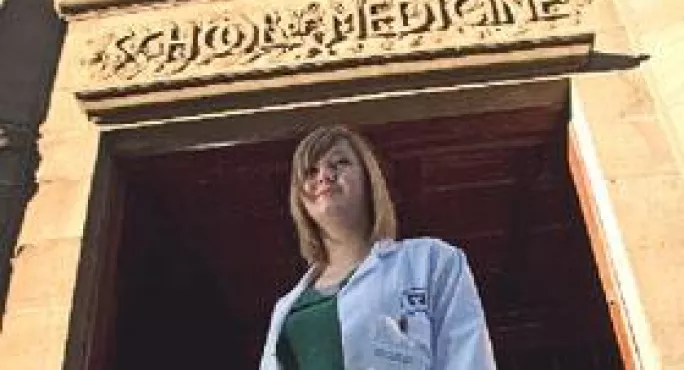Celebrity froth, ill-informed rants about the latest moral panic, and ribald exchanges between rival football fans - online chat performs many functions, most of them entirely ephemeral.
This week, however, an innovative online mentoring scheme is being launched across Scotland to boost entries to medicine and other healthcare courses from more than 100 schools which send fewer-than-average pupils to university.
The Working in Health Access Network scheme links up pupils with students who are already studying on the courses they are interested in applying for.
After a successful pilot last year, involving more than 150 mentors and mentees in the West of Scotland area of WHAN, 12 universities and 13 colleges have signed up to take part this year across Scotland.
All online communication is carried out via a blog overseen by Alan Foster, national co-ordinator for WHAN, or other project staff. Only first names may be used, although a pupil is allowed to identify his or her school. Emails and phone numbers are filtered out for security purposes and it is very difficult for a student to establish the identity of a pupil - or vice-versa.
Feedback from the pilot scheme has been extremely positive to date.
“The student mentors give the pupils a view of the university which they won’t find anywhere else. It becomes a social relationship to an extent,” said Dr Foster, who is based at Glasgow University.
Students are invited to participate via a blanket email - their rewards, Amazon vouchers, are not advertised - but it tends to be the students who are most committed to their course who volunteer, according to Dr Foster. Mentors are given training and undergo disclosure procedures before joining the scheme.
Mentors, not just pupils, seem to get a lot out of it, including the satisfaction of performing an altruistic act and developing communication skills that may be useful in future careers.
Pupils who took part in the pilot report that it gave them a greater insight into what to expect - for example, what to say in interviews to get into highly sought-after courses such as medicine.
Typically, there are approximately 2,000 applications for 200 places to Glasgow University’s medical school each year and it can be difficult for careers advisers to provide the right advice to each applicant.
Student mentors’ advice has credibility with pupils, says Dr Foster.
“They’re not careers advisers, they’re not professionals, but they’ve been through this successfully and they know what it takes,” he said.
Some mentees choose not to go into a healthcare course, which can leave the mentor feeling disappointed. “They shouldn’t be,” said Dr Foster. “They have still helped someone make the right decision for themselves, which makes future drop-outs less likely.”




